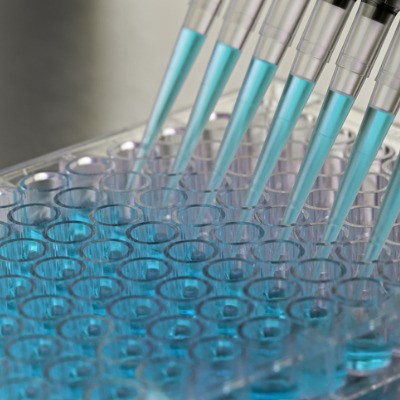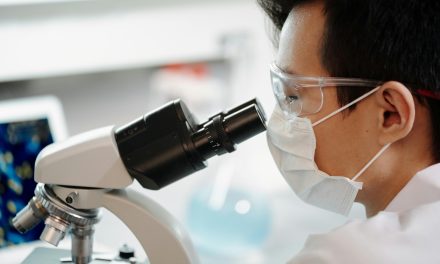Irish researchers have secured more than €15 million for clinical trials from Horizon 2020. A range of health challenges are being tackled through these trials such as liver cancer in children, colorectal cancer, diabetic kidney disease, polypharmacy and osteoarthritis.
Key Takeouts:
Four of these projects are led by Irish researchers and seven have trial sites in Ireland. Kay Duggan-Walls, EU Programmes Officer, HRB in her role as National Contact Point has worked with a number of the researchers on their applications.
We showcase just some of these success stories below and highlight the potential outcomes for people health and patient care. A full list of all 19 projects can be found here:
ChiLTERN – Children’s Liver Tumour European Research Network
Running January 2017-December 2021
The aim of this project is to cure more children with liver cancer, expose fewer children to toxic chemotherapy and ensure their surgery is both effective and safe. It aims to define effective healthcare interventions in children’s liver cancer, increase the knowledge of the biology of the disease and improve surgical outcomes.
COLOSSUS – Advancing a Precision Medicine Paradigm in Metastatic Colorectal Cancer: Systems based stratification solutions
Running 1 January 2018 – 31 December 2022
This project aims to provide new and more effective ways to classify patients with a specific type of colorectal cancer (microsatellite stable RAS mutant metastatic colorectal cancer or MSS RAS mt mCRC) and to develop better treatments for them.
The ultimate goal of the project is to deliver a personalised medicine approach for patients with MSS RAS mt mCRC that is currently not available.
This is a translational multicentre study (sponsored by Cancer Trials Ireland) and is conducted in Spain, Germany and Ireland. It is running in five hospitals in Ireland. This project is coordinated by Annette Byrne, RCSI receiving €2,115,683 in funding.
NEPHSTROM – Novel Stromal Cell Therapy for Diabetic Kidney Disease (DKD)
Running 1 May 2015 – 31 December 2020
DKD is a complication of diabetes and the leading cause of end-stage renal disease. There are currently no treatments to reverse the effects of DKD. NEPHSTROM explores the use of stem cells to slow the progression of this disease and maintain the health and quality of life of the patients. This is a first in man Phase 1b/2a clinical trial of a novel stromal cell therapy called ORBCEL.
Tim O’Brien coordinator of the project says, ‘NEPHSTROM is a study of the safety and efficacy of a single injection of mesenchymal stromal cells in patients with diabetic nephropathy with advancing disease in spite of optimal therapy. It is a dose escalation, double-blind, placebo-controlled study and we have just received approval from the Data Monitoring and Safety Board to advance to the mid dose cohort. If proven to be effective, the therapy would be a significant advance in the treatment of patients with complications of diabetes mellitus’.
This project is running across four clinical trial sites in Europe, Bergamo, Italy, Birmingham, Belfast and the HRB Clinical Research Facility, NUI Galway. In January 2020, the successful treatment of the final patient to be included in the low dose cohort of the clinical trial was achieved.
In June 2020, the NEPHSTROM Galway trial team developed a new trial visit workflow to meet the public health guidelines for COVID-19 protection for patients. They were able to successfully complete the end-of-study visit protocol for one of the NEPHSTROM patients and completed further trial visits in a similar manner in July. The project is coordinated by Tim O’Brien, NUI Galway and receiving €2,084,118 in funding.
Operam – Optimising therapy to prevent avoidable hospital admissions in the multimorbid elderly
Running 1 May 2015 – 30 April 2020
The overall aim of the project is to reduce the risk of side effects and interactions caused by polypharmacy in the elderly, to reduce avoidable hospital admissions.
This project includes an investigator-driven, multi-centre, randomised controlled clinical trial aims to optimise therapy among elderly people with multimorbidity who are often excluded from clinical trials and most guidelines address diseases in isolation. This may lead to inappropriate polypharmacy and poor drug compliance which results in higher hospital admissions.
There are four clinical centres in Europe, Belgium, Netherlands, Switzerland and Cork University Hospital recruiting 2,000 hospitalised multimorbid patients who take more than five drugs. One in four of these patients are recruited in Ireland. The Irish partner for this project is Denis O’Mahony, University College Cork receiving €878,006 in funding.
TUDCA-ALS – Safety and efficiency of tauroursodeoxycholic acid (TUDCA) as add-on treatment in patients affected by amyotrophic lateral sclerosis (ALS)
Running 1 January 2018- 31 December 2021
The aim of the project is to find a new treatment to slow down the progress of Amyotrophic lateral sclerosis (ALS) by conducting a clinical trial to investigate the safety and efficacy of Taurourodeoxycholic acid (also known as TUDCA). TUDCA is a molecule that helps to protect motor neurons by camouflaging a stress chemical released within the motor neuron that starts a process that results in cell death.
The clinical trial is a phase III double-blind, placebo controlled randomised parallel-group study comparing riluzole (only currently available treatment) plus TUDCA to riluzole plus placebo. The first participant was recruited into the study in January 2019.
There are twenty-six recruiting centres in seven Europe countries, Italy, Germany, UK, France, Belgium, Netherlands and TCD Dublin recruiting 440 people recently diagnosed with ALS. The Irish partner in this project is Orla Hardiman, Trinity College Dublin and received €351,086 in funding.
ADIPOA2 – Clinical trial of autologous adipose-derived mesenchymal stromal cells (ASC) in the treatment of mild to moderate osteoarthritis.
Running January 2015 – December 2019
This project is developing a novel cellular therapy to treat osteoarthritis (OA) which is an incurable and debilitating disease. This therapy uses the patient’s own stem cells. These cells are extracted from the patients adipose (fatty) tissue and cultured under rigorous quality control in cell manufacturing facilities before being injected into the patients knee joint where the stem cells help to reduce inflammation and promote the repair of damaged cartilage. ADIPOA-2 will build on the work of FP7 funded project ADIPOA
This a phase IIb multi-centre, prospective randomised double-blind clinical trial comparing the use of culture-expanded, autologous adult adipose-derived stromal cells (ASCs) in subjects with knee OA with injected Hyaluronan (another widely used therapeutic approach for knee degeneration) with placebo.
The trial involves the treatment of 150 patients across 10 hospitals in France, Germany, Netherlands, Italy, UK and Ireland (University Hospital Galway and Sports Surgery Clinic). The project is coordinated by Frank Barry, NUI Galway with partners Cathal Moran, Sports Surgery Clinic and Ciaran Clissman, Pintail Ltd receiving €1,655,250 in funding.
Article submitted by Kay Duggan-Walls, National Contact Point for Health, Horizon Europe





